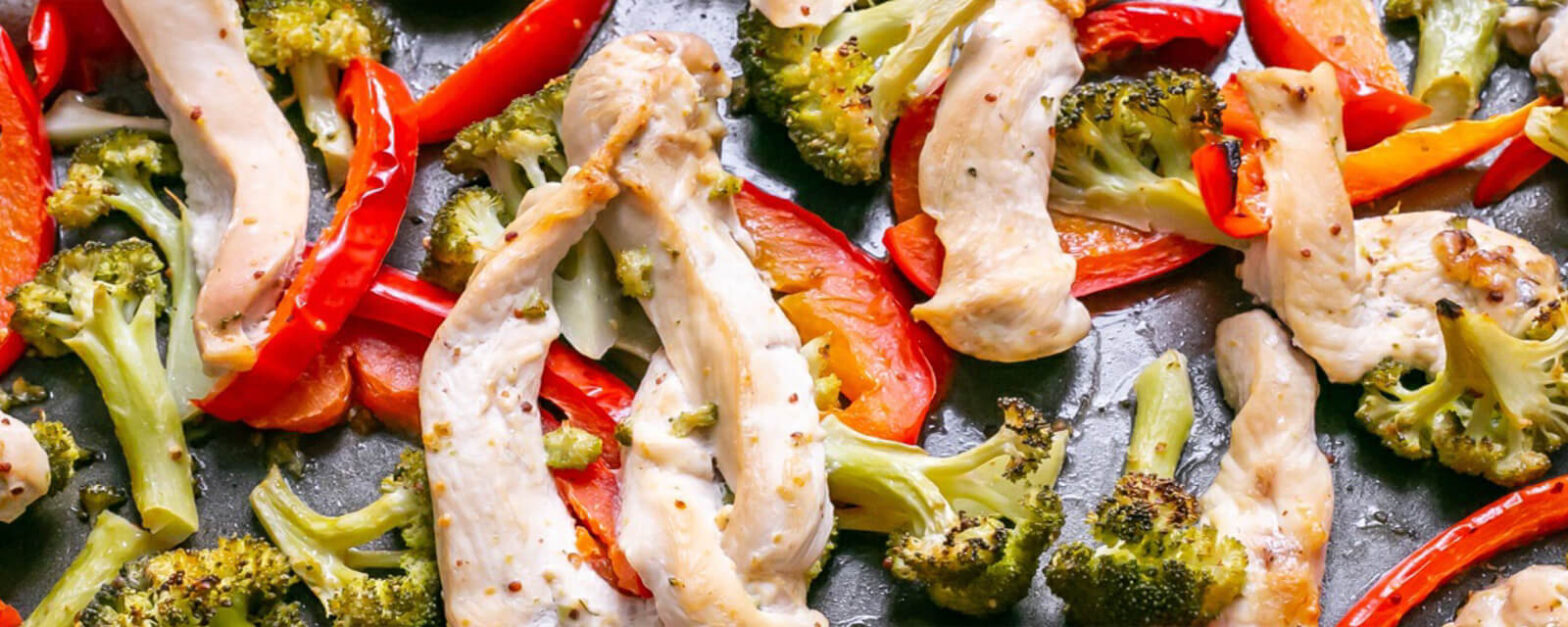2 servings / 25 minutes
Ingredients:
- 2 tbsps Extra Virgin Olive Oil
- 2 tbsps Apple Cider Vinegar
- 1 tsp Dijon Mustard
- 1/2 tsp Sea Salt (divided)
- 4 cups Broccoli (chopped into small florets)
- 2 Red Bell Pepper (sliced)
- 10 ozs Chicken Breast (sliced)
Directions:
- Preheat the oven to 375˚F (190˚C) and line a baking sheet with parchment paper.
- In a large mixing bowl, whisk together the oil, vinegar, mustard, and half the salt. Add the broccoli and bell peppers, tossing gently until well covered. Transfer to the baking sheet and evenly space the vegetables.
- Add the chicken and the remaining salt to the leftover marinade and toss well to coat. Place on top of the vegetables.
- Bake for 20 minutes or until the chicken is cooked through and the vegetables are tender. Divide onto plates and enjoy!
Notes:
- Leftovers: Refrigerate in an airtight container for up to three days.
- More Flavor: Marinate the chicken for at least 30 minutes before cooking.
- Additional Toppings: Chopped fresh herbs.





